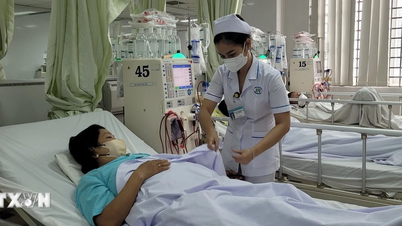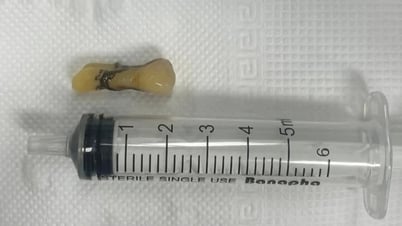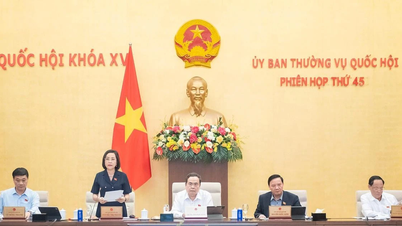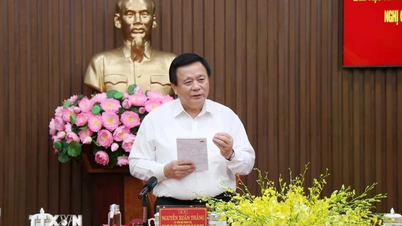A phase 3 clinical trial recently published in the New England Journal of Medicine has found a way to significantly increase the long-term survival of lung cancer patients.
The new international study, led by Professor Patrick Forde at Trinity St. James Cancer Institute in Dublin, Ireland, included 358 patients from around the world with non-small cell lung cancer (NSCLC), the most common type of cancer.
A global trial led by an Irish cancer expert has marked a major step forward in lung cancer treatment - Photo: AI
Non-small cell lung cancer has long posed a huge challenge, especially in stages 2 and 3, where surgery remains the mainstay of treatment. Unfortunately, more than half of patients who undergo surgery eventually experience a recurrence of the cancer, according to News Medical .
Now, the new approach significantly reduces the recurrence rate and increases survival. In fact, for patients with a complete pathological response, the survival rate reaches 100%.
In the trial, half of the participants received conventional treatment — chemotherapy alone followed by surgery — while the other half received chemotherapy combined with the immunosuppressant drug nivolumab before surgery.
The results were impressive: Patients who received nivolumab immunotherapy combined with chemotherapy before surgery had significantly increased long-term survival.
Specifically, the new method helped increase the overall survival rate after 5 years by 10%, compared with chemotherapy alone.
Notably, in patients with a pathological complete response, the authors found that they no longer had any viable cancer cells and none of them died during this period, meaning the 5-year survival rate after surgery was 100%, according to News Medical.
New test brings hope to lung cancer patients - Photo: AI
Lung cancer patients have more hope
Adding immunotherapy to treatment regimens has addressed a major unsolved problem: Reducing the risk of recurrence, a major cause of death in lung cancer patients. Immunotherapy drugs have revolutionized the treatment of metastatic cancer by allowing the immune system to recognize and destroy tumor cells more effectively.
The therapy works by removing the immune-suppressing “coat” that tumors deploy to avoid detection by immune cells. When activated by the drug nivolumab, the immune system can mount a more effective anti-tumor response, eliminating metastases and thus preventing recurrence after surgery to remove the primary tumor.
Professor Patrick Forde, a pioneer in immunotherapy research at Johns Hopkins University (USA), emphasized: These findings are extremely valuable in helping patients access advanced therapies early, which is especially important for aggressive diseases like lung cancer.
As lung cancer remains the leading cause of cancer death globally, the advances offer hope that this new therapy will transform treatment paradigms to help cure the disease.
Source: https://thanhnien.vn/phuong-phap-dieu-tri-moi-cuu-tinh-cho-benh-nhan-ung-thu-phoi-185250604224551504.htm



























































































![[OCOP REVIEW] Tu Duyen Syrup - The essence of herbs from the mountains and forests of Nhu Thanh](https://vphoto.vietnam.vn/thumb/402x226/vietnam/resource/IMAGE/2025/6/5/58ca32fce4ec44039e444fbfae7e75ec)






Comment (0)